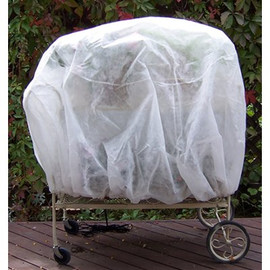 Loading... Please wait...
Loading... Please wait...All Brands
- 3M
- Accu-Pour
- Ames
- Ansell
- Aquaterr
- ARS
- Atlas
- Bahco
- Barnel
- Bon-Aire
- Bucket Boss
- Buddy Tape
- Bully Tools
- CJ Industries
- Computemp
- Cordura
- Corona
- CST/Berger
- DeWitt
- Dramm
- Duratool
- Edmund Scientific
- Elvex
- Environmental Concepts
- Eschenbach
- EZ Haul
- Felco
- Fend-All
- FGS
- Field King
- Fiskars
- Foxgloves
- FrostProtek
- Garner
- Gilmour
- GUARD-TEX
- Hastings
- Havahart
- Herbafex
- Herbi
- Hoklartherm
- Hydrion
- Irrometer
- Istor
- Janssens
- Kelway
- Keson
- Kestrel
- Komelon
- Lincoln
- Logitech
- Luster Leaf
- Max
- Midwest
- Moldex
- MSA
- N-Dex
- Nelson
- North
- Oakfield
- Oakton
- Orbit
- Pelouze
- Presco
- Radius Garden
- Rapitest
- Roundup
- Schrade
- Selsi
- Servus
- Seymour Manufacturing
- Shake Away
- Silky
- Soil Moist
- SP Systems
- Sunkist
- Supco
- Taylor
- Tina
- Towbridge's
- Trece
- TreeKote
- Trowbridge's
- Tru-Chek
- Tula Hats
- Tyvek
- Victorinox
- Watermark
- Westover
- Yard Butler
- Sqwincher
Categories
- Hydration
- Janitorial
- pHTesters
- Budding & Grafting
- Flagging Tape
- Frost Protection
- Gardening Tools
- Harvesting Tools
- Measuring Tools
- Nursery Supplies
- Pest Control
- Safety Supplies
- Shade Cloth
- Garden Sprayers
- Tree Care
- Watering Tools
- Weed Fabric
- Best Sellers
- Markdowns
- Open Box Items
- Gift Ideas
- Felco Tools
- Fiskars
- Gilmour
- Silky
- Home
- Gardening Tips
- Winterizing Your Garden
Winterizing Your Garden

Call us toll free today 800.635.3621
 The growing season is over in most parts of the country, and it is time to prepare your garden for winter so that you will have success when you grow your plants and vegetables again next spring. Here are some tips on how to winterize your garden.
The growing season is over in most parts of the country, and it is time to prepare your garden for winter so that you will have success when you grow your plants and vegetables again next spring. Here are some tips on how to winterize your garden.
The first step in preparing your garden for winter is to remove any plants that are dead and dying. This includes old roots, even though they may be hard to dig up. If there is any indication of blight, the plants need to be removed so that they will not become a home for pests and disease over the winter. One exception is nitrogen-fixing legumes and greens that can be tilled into the soil and blanketed with a cover crop.
Most plants that you pull out of your garden can be used for compost. However, if there is any sign of blight or mold, throw it away or burn it. You can add some compost to your soil now to provide it with nutrients and to help your cover crops grow. This will also mean you will have less work to do come springtime.
Planting a layer of cover crops will hold in and protect your soil. Some specialize in nitrogen fixation, or putting nitrogen from the air into the soil. Others control erosion, add organic matter to soil to improve tilth or fluff, reduce soil compaction, suppress weeds, and retain water. Legumes are good for nitrogen fixation, clover will control erosion, and some blends of oats and rye are best for adding organic matter. Plant your cover crops as soon as you clear everything else out of your garden.
Many cover crops will die over the winter and come back in the spring. After they have matured, mow them down and give them a few days to decompose before tilling. Wait a week or two before planting your food-producing crops.
Instead of planting cover crops, some gardeners prefer to lay down a blanket of mulch, such as bark chips, straw, or leaf litter. This will conserve moisture, prevent weeds from growing, and moderate the temperature of the soil.
Check More of Our Gardening Tips





